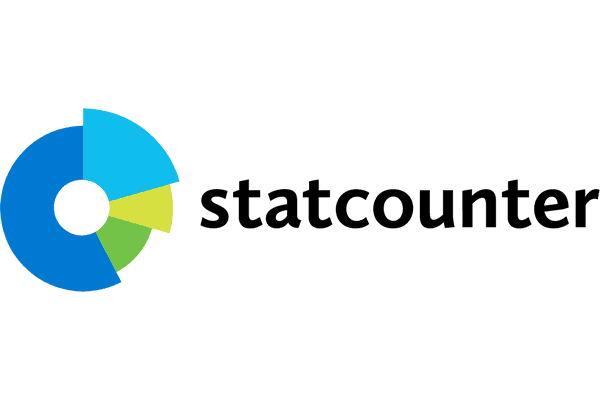EVALUASI PROGRAM KELAS UNGGULAN DALAM MENINGKATKAN MUTU PENDIDIKAN MENGGUNAKAN MODEL EVALUASI KONTEKS, INPUT, PROSES, DAN PRODUK
DOI:
 https://doi.org/10.37859/eduteach.v6i02.8870
https://doi.org/10.37859/eduteach.v6i02.8870
Abstract
The excellent class program is an alternative strategy to improve the quality of education by providing more intensive and quality learning for high-achieving students. This study aims to show the effectiveness of the excellent class program in improving the quality of education by evaluating the Context, Input, Process, and Product models. The location of the study was SMA Negeri 3 Palembang. The method used in the study was qualitative with a phenomenological approach. Data were collected through observation, interviews, and documentation. The results of the study showed that the excellent class facilitated outstanding students to develop optimally. This program has a positive impact on improving the quality of education, seen from student academic achievement, learning motivation, and character and skill development. The school has succeeded in improving the quality of graduates with 80% continuing their higher education. However, there are still obstacles to facilities, disruptions between students in excellent classes and regular classes, and teacher-parent relationships. Therefore, improvements are needed to be more optimal and sustainable.
Downloads
References
[2] Sulastri, H. Fitria, and A. Martha, “Kompetensi Profesional Guru dalam Meningkatkan Mutu Pendidikan,” J. Educ. Res., vol. 1, no. 3, pp. 258–264, 2020, doi: 10.37985/jer.v1i3.30.
[3] T. Fawzi and L. Dodi, “Aspek Perkembangan Manajemen Pembelajaran Active Learning, Paikem Pada Kelas Unggulan,” Attadrib J. Pendidik. Guru Madrasah Ibtidaiyah, vol. 5, no. 2, pp. 64–75, 2022, doi: 10.54069/attadrib.v5i2.247.
[4] A. R. Z. Wati and S. Trihantoyo, “Strategi Pengelolaan Kelas Unggulan dalam Meningkatkan Prestasi Belajar Siswa,” J. Din. Manaj. Pendidik., vol. 5, no. 1, p. 46, 2020, doi: 10.26740/jdmp.v5n1.p46-57.
[5] S. F. Ramadani, E. Ekojono, and N. Santoso, “Sistem Pendukung Keputusan Seleksi Siswa Kelas Ungulan Di Smp Negeri 7 Malang,” J. Inform. Polinema, vol. 3, no. 3, pp. 27–31, 2017, doi: 10.33795/jip.v3i3.30.
[6] N. Atifa, S. Satriawati, S. Alam, and E. Fitriana HS, “Pengaruh Perhatian Orang Tua Terhadap Kemandirian Belajar Siswa Kelas IV UPT SPF SD Inpres Unggulan BTN Pemda Kota Makassar,” J. Ilm. Profesi Pendidik., vol. 8, no. 4, pp. 2709–2714, 2023, doi: 10.29303/jipp.v8i4.1653.
[7] A. Kodir and Suklani, “Peran Teknologi Informasi Dalam Manajemen Pendidikan Islam,” El-Idare J. Manaj. Pendidik. Islam, vol. 10, no. 1, pp. 151–158, 2024, doi: 10.19109/elidare.v10i1.21023.
[8] W. Puspita, MANAJEMEN KONFLIK Suatu Pendekatan Psikologi, Komunikasi dan Pendidikan. Yogyakarrta: Deepublish, 2018.
[9] I. Faizin, “Evaluasi Program Tahfidzul Qur’an Dengan Model CIPP,” J. Al-Miskawaih J. Pendidik. Agama Islam, vol. 2, no. 2, pp. 99–118, 2021.
[10] W. F. Antariksa, A. Fattah, and M. A. P. Utami, “Evaluasi Program Pendidikan Pesantren Mahasiswa Model Cipp (Context, Input, Process, Product),” Eval. J. Manaj. Pendidik. Islam, vol. 6, no. 1, pp. 75–86, 2022, doi: 10.32478/evaluasi.v6i1.848.
[11] D. Sohilait and A. Asep, “Evaluasi Program Pembelajaran Berdasarkan Metode EKOP di Sekolah Menengah Atas Negeri 9 Ambon,” J. Ilm. Profesi Pendidik., vol. 8, no. 1b, pp. 539–545, 2023, doi: 10.29303/jipp.v8i1b.1247.
[12] I. S. Rahmawati, “Evaluasi Program Pendidikan: Tinjauan Terhadap Efektivitas dan Tantangan,” El-Idare J. Manaj. Pendidik. Islam, vol. 9, no. 2, pp. 128–136, 2023, doi: 10.19109/elidare.v9i2.20229.
[13] A. Suryadin, W. Purnama Sari, and Nurfitriani, Evaluasi Program Model CIPP (Context, Input, Process, and Product) antara Teori dan Praktiknya. Yogyakarta: Samudra Biru, 2022.
[14] W. Puspita, Manajemen Laboratorium untuk Mahasiswa dan Umum. Yogyakarta: Depublish, 2019.
[15] N. Dowansiba and Hermanto, “Strategi Kepala Sekolah Menengah Atas dalam Menyiapkan Sekolah Penggerak,” J. Pendidik. dan Kebud., vol. 7, no. 2, pp. 125–137, 2022, doi: 10.24832/jpnk.v7i2.3060.
[16] A. Makhbuba and K. Mukhabbat, “The Relevance of Forming Students ’ Managerial Competencies,” Indones. J. Multidiscip. Res., vol. 4, no. 1, pp. 89–98, 2024.
[17] S. Salam, F. Firman, and M. Mirnawati, “How to Improve Learning Outcomes of the Indonesian Language in Elementary Schools through the Implementation of Problem-Based Learning Methods,” Pedagog. J. Islam. Elem. Sch., vol. 5, no. 1, pp. 131–144, 2022, doi: 10.24256/pijies.v5i1.2736.
[18] L. N. Kholidah, I. Winaryo, and Y. Inriyani, “Evaluasi Program Kegiatan P5 Kearifan Lokal Fase D di Sekolah Menengah Pertama,” Edukatif J. Ilmu Pendidik., vol. 4, no. 6, pp. 7569–7577, 2022, doi: 10.31004/edukatif.v4i6.4177.
[19] M. Astuti, F. Ismail, S. Fatimah, W. Puspita, and Herlina, “The Relevance Of The Merdeka Curriculum In Improving The Quality Of Islamic Education In Indonesia,” Int. J. Learn. Teach. Educ. Res., vol. 23, no. 6, pp. 56–72, 2024, doi: 10.26803/ijlter.23.6.3.
[20] A. Faizin and H. Kusumaningrum, “Review Model-model Evaluasi Program Untuk Pendidikan dan Pelatihan Online,” Edu Manajerial J. Manaj. Pendidik., vol. 1, no. 1, pp. 42–54, 2023.
[21] I. Nurwahidah and D. S. Sari, “Analisis Keterampilan Mahasiswa Pendidikan IPA dalam Melakukan Praktikum dan Berkolaborasi,” EduTeach J. Edukasi dan Teknol. Pembelajaran, vol. 3, no. 2, pp. 1–10, 2022, doi: 10.37859/eduteach.v3i2.3795.
[22] W. Puspita, “Pentingnya Analisis Lingkungan Internal bagi Pencapaian Tujuan Lembaga Pendidikan Islam,” J. Islam. Educ. Manag., vol. 2, no. 2, 2016, [Online]. Available: http://jurnal.radenfatah.ac.id/index.php/El-idare.
Downloads
Published
Issue
Section
License
Copyright (c) 2025 EduTeach : Jurnal Edukasi dan Teknologi Pembelajaran

This work is licensed under a Creative Commons Attribution-NonCommercial-ShareAlike 4.0 International License.










